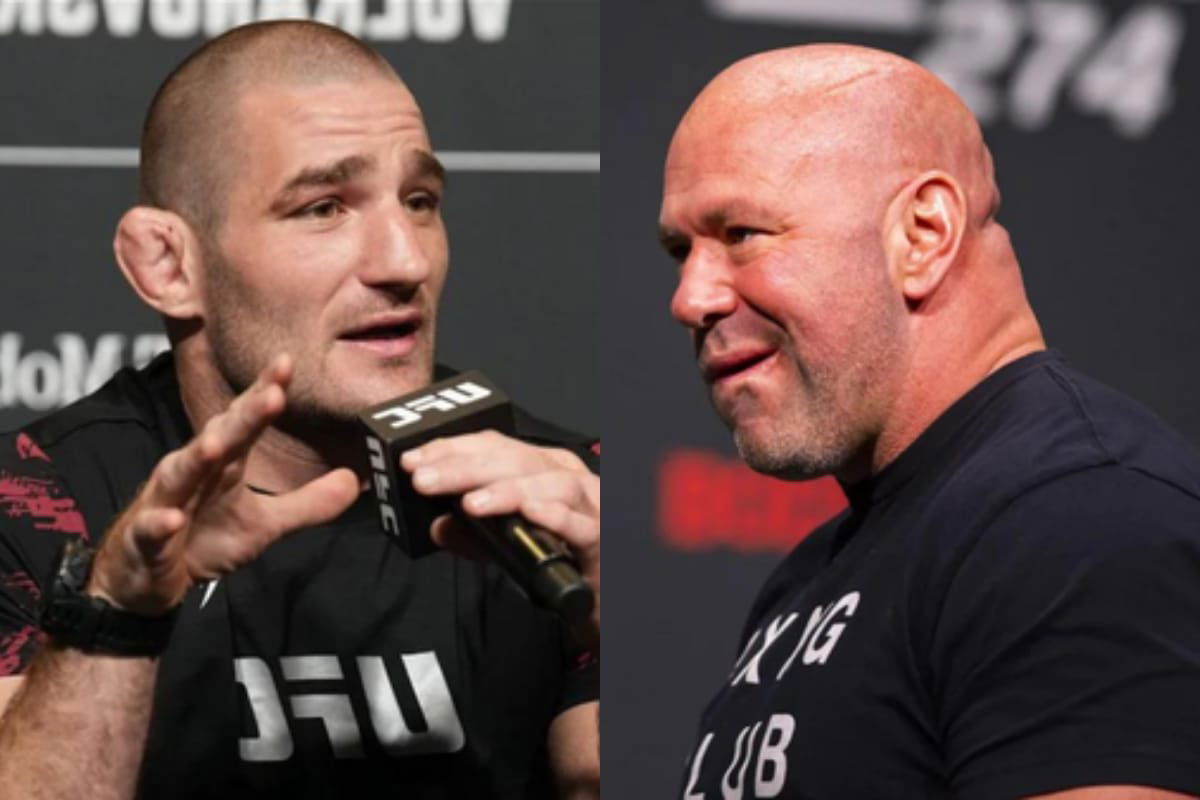
Imago
Credit: Imago

Imago
Credit: Imago
Since UFC Hall of Famer Khabib Nurmagomedov burst onto the scene in 2012, few could have predicted that his arrival was only the beginning—a glimpse of the wave to come. The Caucasus Mountains, already renowned for producing some of the world’s most disciplined wrestlers, would soon give rise to a new generation of elite mixed martial artists destined to take over the sport’s biggest stage.
Watch What’s Trending Now!
Fast forward a decade, and fighters from Dagestan and the surrounding regions have become dominant forces across multiple UFC divisions. Names like Islam Makhachev, Umar Nurmagomedov, and newly crowned 205lb champion Magomed Ankalaev now lead the charge. Meanwhile, neighboring nations such as Georgia, Armenia, and Azerbaijan have also contributed their share of world-class talent, including Ilia Topuria, Merab Dvalishvili, Arman Tsarukyan, and Rafael Fiziev.
Today, these fighters from the Caucasus region are asserting a level of dominance reminiscent of the Brazilian legends who came before them—icons like Anderson Silva and José Aldo. Yet, unlike the Brazilian wave of the past, this new surge has brought with it a wave of scrutiny and criticism, particularly aimed at UFC President Dana White and UFC. Some critics have begun questioning the UFC’s increasingly international roster—particularly the heavy presence of Dagestani and other non-American fighters.
For a while, this concern went largely unaddressed—until former UFC Middleweight Champion Sean Strickland weighed in with his trademark bluntness during a livestream with Adin Ross.
Strickland stated:
“I don’t know, dude. Like, the problem with the UFC, dude, is they don’t pay anybody. They don’t pay guys. So, like, the reason why you’re seeing everybody in the roster is Ahmed and, you know, Jose and whatever Brazilian name, you know? And it’s because the UFC isn’t paying you guys money. So, I think what you’re gonna have is you’re gonna have an entire roster filled with just foreigners.”
🇺🇸 Sean Strickland explains that UFC hires more Dagestani, Brazilian and other foreign fighters because it costs them less than american fighters.
“You’d make more money working in a Walmart”.
🎥 @adinross pic.twitter.com/tL6G4acJKs— Home of Fight (@Home_of_Fight) June 1, 2025
For years, Dana White and the UFC have faced heavy criticism within the MMA community—accused of stalling fighters’ careers through restrictive, one-sided contracts that strip them of rights and block outside opportunities. Earlier this year, the promotion grabbed headlines by agreeing to a $375 million settlement in a major antitrust lawsuit, which claimed the UFC had deliberately suppressed fighter wages.
Now, the controversy continues. The organization is once again under legal scrutiny, this time from former UFC fighter Phil Davis, who has filed a new lawsuit of his own.
Phil Davis dragged Dana White & UFC into another lawsuit
Still reeling from the $375 million antitrust lawsuit—originally brought by Cung Le, Nate Quarry, and others on behalf of fighters competing between 2010 and 2017—the UFC now finds itself facing another wave of legal trouble. A second lawsuit, this one still pending, targets the promotion’s practices from 2017 to the present. And unlike the first, this new case is stirring concern not only among former UFC athletes but also among fighters currently competing in rival promotions.
Among the most vocal is Phil Davis, a former UFC title contender who now fights under the PFL banner. Davis has stepped into the legal battle, criticizing what he sees as the UFC’s long-standing stranglehold on the MMA marketplace. The lawsuit, filed in the U.S. District Court of Nevada, claims the UFC used anti-competitive tactics to suppress fighter wages and prevent other promotions from signing top-tier talent.
Davis, represented by Berger Montague—the same firm behind the first major settlement—didn’t mince words. “I am proud to stand up for professional MMA fighters to unlock the UFC’s stranglehold on the entire sport,” he said. The lead attorney representing the plaintiffs laid out the broader aim of the case, saying, “We intend to prove that the UFC engaged in a predatory scheme… impairing the careers and pay not just of the UFC’s own fighters, but also of professional MMA fighters like Mr. Davis competing for MMA promotions across the MMA industry.”
With serious accusations from Sean Strickland and a new lawsuit initiated by Phil Davis, what’s your opinion on Dana White’s roster strategy—especially his increasing reliance on foreign fighters, particularly those from Dagestan? Share your thoughts below.

